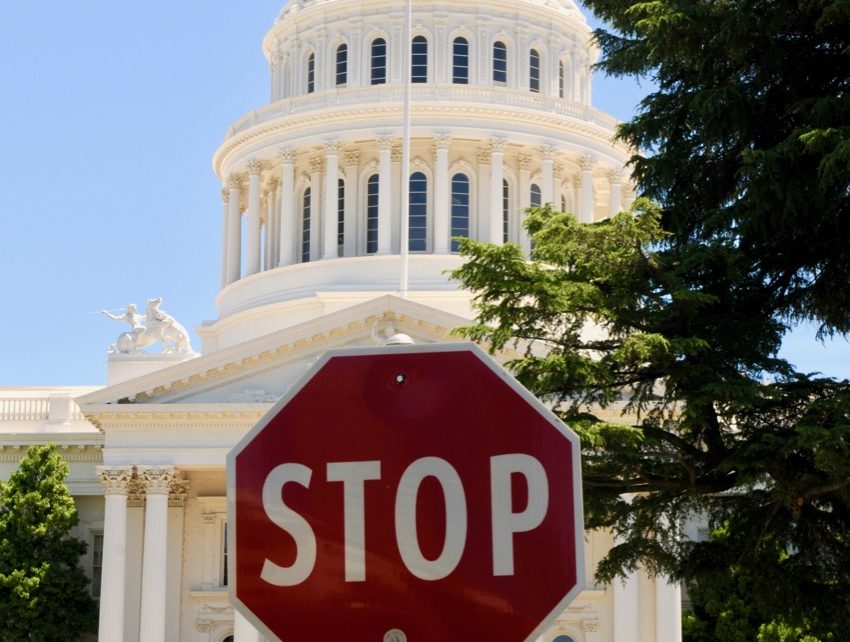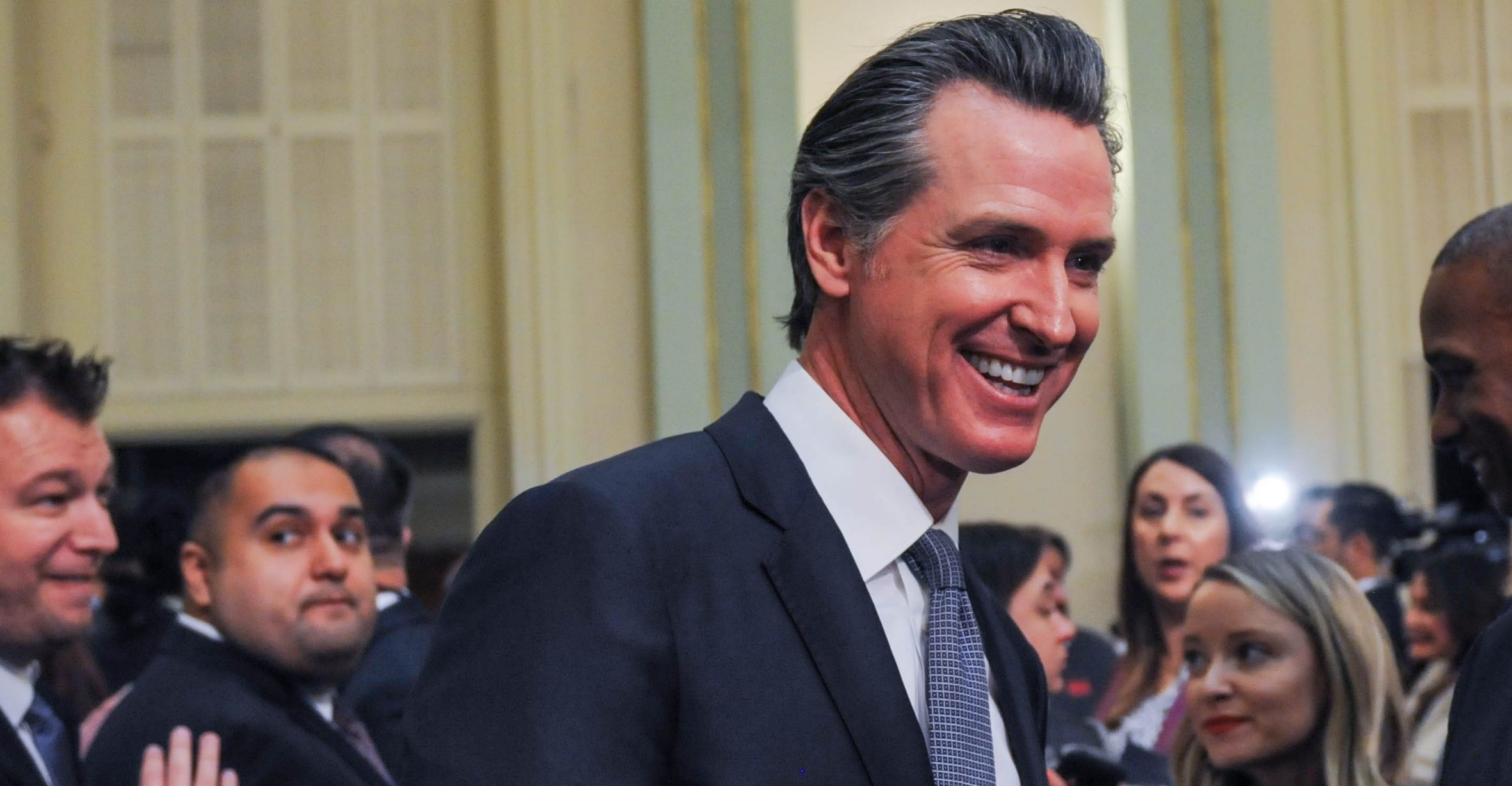
California State Capitol. (Photo: Kevin Sanders for California Globe)
Job Killers: Business Tax Increases Pending Passage by CA Legislature
Legislation that would harm California’s economic growth and job creation
By Katy Grimes, June 11, 2019 7:40 am
Chris Micheli posted a list of pending tax legislation of particular interest to the California business community. These bills are continuing through the legislative process, awaiting passage.
Some of these bills are on the Cal Chamber Job Killer list.
“These bills represent some of the worst policy proposals affecting California employers and our economy currently being considered by Legislature,” said CalChamber President Allan Zaremberg referring to the Cal Chamber’s Job Killer list. “Some of these bills have been rejected time and again by the Legislature or vetoed by the previous Governor. Legislators should, instead, focus on removing impediments to economic growth and creating upward mobility for all Californians.”
SB 37 (Skinner; D-Berkeley) Staggering Corporate Tax Hike — For certain companies, SB 37 would raise California’s corporate tax rate – already one of the highest in the nation – up to a staggering 22.26%, which amounts to an increase of about 150% and which will undoubtedly discourage companies from locating or further investing in the state.
This bill would, for taxable years beginning on or after January 1, 2020, revise the rate for corporations with net income subject to taxes of $10,000,000 or more to instead impose a tax rate from 10.84% to 14.84%, or for financial institutions, from 12.84% to 16.84%, based on the compensation ratio, as defined, of the corporation. The bill would increase the applicable tax rate by 50% for those taxpayers that have a specified decrease in full-time employees employed in the United States as compared to an increase in contracted and foreign full-time employees,
Status: Pending in the Senate Rules Committee
SB 246 (Wieckowski, D-Fremont) – Tax on oil and gas operators
Under the Oil Industry Levy Act, 10% of the average price/bbl of oil or 10% of the average unit of natural gas would be taxed. Collected revenue would be deposited in the state general fund, Natural Gas Intel reported.
Western States Petroleum Association President Catherine Reheis-Boyd called the proposal an “unnecessary tax” that would harm the state’s economy at a time when elected officials are touting a large budget surplus. “California voters have already rejected this bad idea,” she said, referring to a 2006 ballot measure. Voters “understand it would increase costs, devastate jobs, local services and compromise our state’s sustainable energy future.”
Status: Pending in the Senate Rules Committee
SB 378 (Wiener, D-San Francisco) – Estate tax
Touted as a way to combat “income inequality,” by the Sacramento Bee, this bill would propose to the voters a repeal of the initiative measure prohibiting the imposition of an estate tax. SB 378 would be on the 2020 ballot asking voters to decide whether to allow the tax on personal estates to be collected and distributed into a newly created “Children’s Wealth and Opportunity Building Fund.”
It would tax the estate of individuals worth more than $3.5 million, or couples worth $7 million, at 40 percent, generating between an estimated $500 million to $1 billion in new tax revenue.
“These are poorly targeted taxes on capital,” the Tax Foundation writes. “The capital owned by these high-net-worth individuals is used to employ others, to make products consumed by other individuals, or to generate returns for pensions and retirement accounts owned by others. While the legal incidence of the tax would be on the wealthy individuals, the economic impacts (incidence) would be much more dispersed.”
“This is another example of why policymakers, when discussing issues such as income inequality, should consider the limitations and negative consequences created by using the tax code as a fix.”
Status: Pending in the Senate Rules Committee
SB 468 (Jackson; D-Santa Barbara) $20 Billion Tax Increase
The $65.2 billion per year in various California income tax credits, deductions, exemptions, and exclusions, is targeted under the guise of “transparency and accountability,” under SB 468, California Globe reported.
This bill would establish in state government the California Tax Expenditure Review Board as an independent advisory body to comprehensively assess major tax expenditures, as defined, and make recommendations to the Legislature.
Cal Chamber says: Before amendments, repealed several of California’s most popular and most important tax exemptions and expenditures, which would raise taxes by $20 billion. Job killer status removed due to May 7, 2019 amendments that eliminate the automatic repeal of these tax exemptions. CalChamber remains oppose unless amended.
Status: Pending in the Assembly policy committee
SB 522 (Hertzberg, D-Los Angeles) – Services tax intent bill
This bill could be a legislative vehicle to extend the sales tax to business services.
SB 522 would make legislative findings regarding the need for further efforts to modernize and restructure the state’s tax system and would state the intent of the Legislature to enact legislation that would accomplish specified purposes, including realigning the state’s outdated tax code with the realities of California’s 21st century economy.
Status: Pending in the Senate Rules Committee
SCA 5 (Hill; D-San Mateo/Allen; D-Santa Monica) Lowers Voter Threshold for New Tax Increase — Unnecessarily reduces the voter threshold from two-thirds to 55% for school districts and community college districts to enact a discriminatory parcel tax against disfavored industries and commercial property owners. Placed on Senate Inactive File on May 21, 2019 at author’s request.
This measure would alternatively condition the imposition, extension, or increase of a parcel tax, as defined, by a school district or community college district upon the approval of 55% of its voters voting on the proposition, if the proposition meets specified requirements.
Status: Pending on the Senate Floor; the author made it a 2-year bill
The Legislature is scheduled to adjourn on September 13, and Governor Gavin Newsom will have 30 days to act on measures sent to him by that date. We’ll check back after final actions take place on these and other measures.
Assembly Bill 18 (Levine, D-Marin) – Firearms tax
This bill would impose an excise tax on a retailer in the amount of $25 per firearm on the sale in this state of a handgun or semiautomatic rifle or shotgun sold as new.
AB 18 also creates the California Violence Intervention and Prevention (CalVIP) Firearm Tax Fund, which the new excise tax will fund and the funds will be administered by the Board of State and Community Corrections, to award competitive grants for the purpose of violence intervention and prevention.
Status: Held in the Assembly fiscal committee
- What is Trump’s Plan B After Supreme Court Strikes Down Tariffs? - February 20, 2026
- New BLS Data Shows Union Membership Drives Falling Flat - February 19, 2026
- NY Federal Reserve Tariff Report an ‘Embarrassment’ - February 19, 2026





I believe your views of these new laws being “job killers” is the most ridiculous claim a journalist can make. These corporations have been hoarding the wealth for decades…with no significant job growth or wage increases seen, regardless of how much they’re taxed. Since these corporations aren’t sharing in the profits, it’s time the government stepped in to TAKE our fair share. So many business owners are stealing from Californians that we actually have an agency that was created specifically to catch the tax cheats.
Thankfully the CA Department of Tax and Fee Administration is fighting for the common citizen. Otherwise, we would have selfish idiots, like the author of this article, ruining our State’s future.
Taxation is theft.
It was the best of times. It was the worst of times. Both because of income inequality.